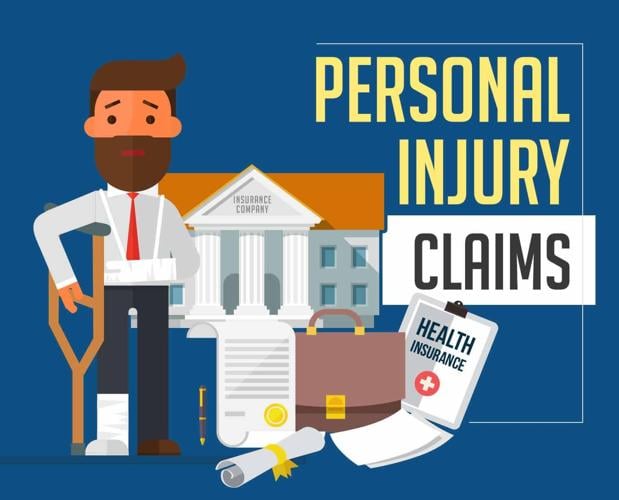
South Carolina, a state rich in history and cultural diversity, offers a unique blend of scenic beauty and vibrant communities. From the bustling streets of Charleston with its well-preserved architecture and charming cobblestone walkways to the rolling hills and picturesque landscapes of the Upstate region, South Carolina embodies a spirit of resilience and hospitality. The people of South Carolina are known for their warmth, deeply rooted traditions, and a strong sense of community. Life here is marked by festivals celebrating local heritage, outdoor activities that take advantage of the state’s natural wonders, and a culinary scene reflecting the best Southern cuisine. However, despite the state's allure, residents are not immune to the unforeseen challenges that life can bring.
Among these challenges, personal injuries stand out, impacting individuals and families across the state. Getting injured can turn your world upside down, posing a wide range of emotional and financial challenges. For individuals facing hardships, pursuing a personal injury claim becomes vital to ensure they receive the justice and compensation they are entitled to. In this article, we will explore the ins and outs of personal injury claims, outlining the essential steps victims should follow to navigate the process effectively. By grasping the basics of initiating a claim and speaking to an experienced personal injury attorney in South Carolina, individuals can equip themselves to demand adequate compensation for their suffering.
1. Engage a Seasoned Lawyer
Initiating a personal injury claim involves procedures that demand time and attention. It is imperative to enlist the services of an attorney with expertise in personal injury law. A capable lawyer will offer advice, evaluate the strength of your case, engage in negotiations with insurance firms on your behalf, and advocate for you in court proceedings if required.
2. Compile Vital Details
Before pursuing your personal injury claim, it is crucial to amass all available information concerning the incident at hand. This includes police reports, medical documentation, images depicting injuries or property damage, testimonials from witnesses, and any additional corroborative evidence at your disposal. Providing documentation to your lawyer can strengthen your case and improve your chances of maximizing the compensation.
3. Determine liability
Establishing who is at fault is essential for a personal injury claim. Your lawyer will carefully review all available evidence to determine liability and build a case against those responsible for your injuries.
4. Calculate damages
Calculating damages involves assessing the losses you have incurred due to the injury. These may encompass medical bills (both current and future), lost income, property damage expenses, emotional distress compensation, rehabilitation costs, and other financial impacts stemming from the injury. Accurately evaluating these damages is crucial when pursuing compensation.
5. Negotiate with Insurance Companies
When insurance companies representing the aggrieved party offer a settlement after you file a personal injury claim, it's important to seek advice from your attorney before agreeing to any settlement terms. A skilled attorney will use their negotiation expertise to ensure you receive the due compensation rather than settling for an inadequate amount.
6. Explore Alternative Dispute Resolution

Sometimes, using methods like mediation or arbitration can be effective in settling disputes without resorting to lengthy court processes. These approaches involve a third party helping the involved parties negotiate. While quicker and more cost-effective than going to trial, it's important to have a lawyer present during these proceedings to safeguard your rights.
7. Prepare for Trial
If attempts at negotiation or alternative dispute resolution don't lead to a resolution, your personal injury case might end up in court. This can involve gathering evidence, presenting your case in front of a judge or jury, and advocating for compensation. Your legal representative will assist you through this process, ensuring you're well-prepared for trial.
8. Seek Emotional Support
Dealing with the aftermath of an injury can be emotionally taxing. It's crucial to seek support while navigating the personal injury claim process. This support may come from friends, family members, or professional counselors who can offer guidance and help you cope with the challenges often associated with traumatic experiences. Having a support network in place is not only beneficial for your well-being but also provides strength throughout the legal process.
9. Stay Informed of Deadlines and Statutes of Limitations
One crucial aspect of pursuing a personal injury claim is to be aware of the applicable deadlines and statutes of limitations. Each jurisdiction may have its own specific time frames within which a claim must be filed. Failing to adhere to these deadlines could result in the loss of your right to seek compensation. Work closely with your attorney to ensure all necessary paperwork, filings, and documentation are submitted within the required time frames.
Navigating a personal injury case can feel overwhelming, but with this detailed guide in hand, individuals can confidently seek the justice they are entitled to. From selecting a lawyer to preparing for court proceedings, each outlined step is essential for achieving results. It's important to remember that enduring prolonged hardship due to someone’s negligence deserves compensation. By gaining an understanding of personal injury claims and collaborating with reputable legal experts, individuals can take control of their situation and find resolution and financial recovery following such challenges.
Here are some other articles related to your search:



(0) comments
We welcome your comments
Log In
Post a comment as Guest
Keep it Clean. Please avoid obscene, vulgar, lewd, racist or sexually-oriented language.
PLEASE TURN OFF YOUR CAPS LOCK.
Don't Threaten. Threats of harming another person will not be tolerated.
Be Truthful. Don't knowingly lie about anyone or anything.
Be Nice. No racism, sexism or any sort of -ism that is degrading to another person.
Be Proactive. Use the 'Report' link on each comment to let us know of abusive posts.
Share with Us. We'd love to hear eyewitness accounts, the history behind an article.